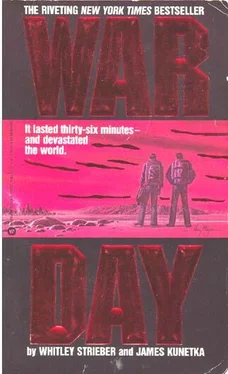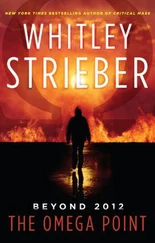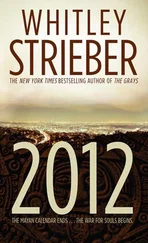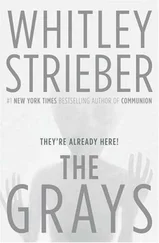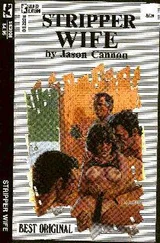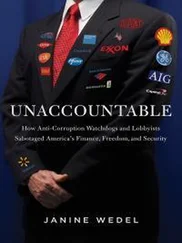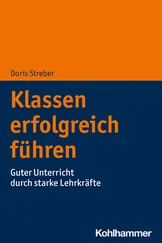It wasn’t accurate enough to measure hot spots on people, but it did help us to confirm that our water was not highly contaminated and that our top two floors and the area of the church closest to the main doors were, as well as all areas on the main floor of the school near doors and windows, and the whole central foyer.
That Kearney Fallout Meter probably saved the lives of most of the people in our School. It also enabled Mrs. Dannay to develop a rough estimate of ambient radiation outside. She told us that trips out were safe only for fifteen or twenty minutes, and that no individual should make more than one trip.
It was on the third day that I began to have symptoms. My head had become infected despite copious applications of Betadine and plenty of soap and water. Of course, I had been exposed to radiation and that had lowered my resistance to disease. (Lowered resistance caused by the combination of radiation and starvation is undoubtedly the reason that the Cincinnati Flu took so many lives the year before last.) In any case, I began to get symptoms of radiation poisoning and infection. My head hurt terribly.
When I started vomiting, Anne and Andrew took me off to a corner of the hall and tended me there. They did not want to put me in the parents’ lounge, which had become a virtual dying room.
Just about everybody who went in there died within a few hours.
Of course, people had no notion of how to protect themselves from radiation, and many of them had gotten very severe doses. I hoped that my dose wasn’t too terrible, but I also suspected that, combined with the head wound and the rough conditions, it might weaken me enough to threaten my life.
We prayed a good deal. Over the past few years we had gone from being agnostics to becoming Christians again. We had been parishioners at Grace for about six months. I am a Roman Catholic by birth, and have had a stormy relationship with my Church. During the early eighties I went through a period of what could be described as confused neutrality. By Warday, I was temporarily uninterested in religion, though I felt comfortable with my son in an Episcopal school. Since the Reunion of ’90, I have been a Catholic worshiping in the Episcopal rite.
It was the prospect of death that brought me back once and for all to the Church. I am not a strong man, spiritually. I returned because I was facing pain and destruction and I was scared. Since Warday my faith has become so essential to me that I can hardly imagine being without it. When I thought I was dying, I began to pray to the Blessed Virgin, to whom I used to turn in times of childhood crisis. I was not afraid to die, but I felt awful that I must leave Anne and Andrew at such a time.
The sickness grew in me until it was an invincible horror, a devastating, agonizing thing that wracked me with convulsion after convulsion and left me so weak I could not even move my hands, let alone talk. Our rector came and gave me the last rites. With my wife and son at my side, I waited for death.
By this time Dr. Leo Stein had arrived. Leo’s son Jeremy and my boy were best friends, and Leo and I had gotten to know each other pretty well. He had been working since Warday. The moment he heard the explosion, he had simply packed up what he had on hand in his office and hiked to the nearest hospital, which was Bellevue. The hospital had reeled under the strain, but Bellevue was a powerful institution and had managed to organize itself well enough to provide at least routine care to every serious case that presented itself. This was before triage, and doctors were still treating people on a most-serious-first basis. Best-prospect-first classification was still six months away. When Leo had been relieved after seventy hours of work, he had put on a whole-body radiation suit from the hospital’s stores, acquired a gun from its armory, and come down here on foot, bringing what medicines he could.
He treated me with ampicillin for my infection, then dressed the head wound. To replace electrolytes lost in vomiting and diarrhea, he prescribed the now-familiar salt, baking soda, and potassium solution that is routinely used in such cases. We managed only the salt and baking soda. I recovered without the potassium. Nine days after Warday I was on my feet again. I weighed a hundred and thirty-one pounds. In nine days I had lost forty-six pounds.
Since then, my lifedose level has been diagnosed as terminal, so I am on the triage, waiting for the inevitable outbreak of cancer. It could start tomorrow, or next year, or in five years. It might never start, but the odds in favor of that are very small.
By the time I recovered, the radiation level in the streets was not detectable on our Kearney Fallout Meter. Our food supplies were dwindling, and water was strictly rationed. About a third of the families had left the school.
On November 6, 1988, Anne and Andrew and I started out on our own journey home. It was to be a long and bitter trip, ending in sorrow.
Home is where one’s family lives. For Anne and Andrew and me, this was San Antonio. Not until ten hard days of traveling later, when we were on a bus in Arkansas, did we learn that it had suffered the same fate as Washington and was no more.
JIM
What’s It Like Out There?
I was forty-four years old on Warday. By prewar standards I had lived somewhat more than half of my life.
I was forty-nine when I left with Whitley on an adventure through postwar America. I was very conscious that the five years that had just passed had been the equivalent of at least twenty prewar years. I kept wondering how many more I would use up on the journey.
And I wonder now how many are left.
War is about death and change, but it is also about numbers, about counting. Because there was a war, our numbers have changed. If it did nothing else, the war and its aftereffects have aged us. But how do we measure an epidemic of shortened lives?
Whitley and I have been friends a long time. We went to grade school together. Our prewar literary careers certainly didn’t parallel, but they happened in tandem. I was writing Oppenheimer while he was doing The Wolfen, for example. I doubt that those books are even known now.
(It makes me feel terribly uneasy to think of J. Robert Oppenheimer. He has appeared from time to time in my dreams. He stands there, silent. When I realize who it is, I wake up with a shout.)
But beyond friendship or an interest in writing, there was a shared vision. Two men in their forties, white-haired, thick of voice, slowed, but wanting to find out what is happening in ordinary, everyday America. Poor communications have made a secret of experience we all need and deserve to share.
When Whitley and I first considered the notion behind this book, my impulse was protective: I wanted to stay right here at home and cling to what life I have left. But then I began to wonder: What is the country actually like now? Everything certainly seems different. If there has been fundamental change, is it productive? Or is cultural psychosis threatening us?
At first, I must admit, even my curiosity was not enough to move me. Even in tranquil times, one tends to hold on to anything definite and stable, and my job with the Dallas Herald News was a good one. Whitley and I talked about the book needing to be written, but I’m not sure I buy that. I don’t think there is such a thing as a book that needs to be written.
But the question of the state of the country—the way it feels for ordinary people to live in its various regions—wouldn’t go away. Since the wire services were reconstructed in ’90, we have all been getting a certain amount of outside news. But facts can’t reveal the things that are really important: how it feels and tastes and smells in America, what work is like and what hopes are general. The only way to find such things out is to walk the streets and talk to the people.
Читать дальше
